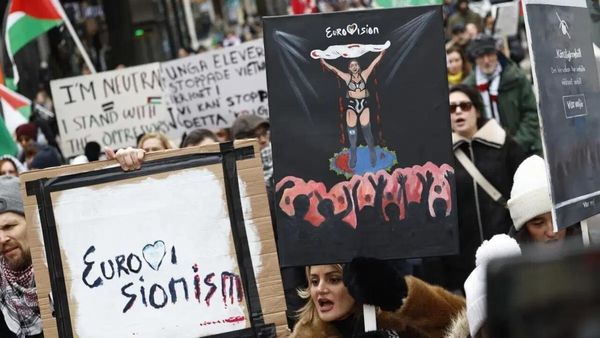
After lengthy and heated negotiations, the United States Senate has unveiled a nearly $1 trillion bipartisan infrastructure package on Sunday night.
The bipartisan bill will allocate the funds toward rebuilding the country’s crumbling airports, tunnels, railways, public transit systems, ports, bridges, roads and waterworks. Money would be spent on improving internet broadband connectivity and the nation’s electric grid. Investments will be made in building electric vehicle charging stations and helping to keep our water clean.
However, we’re not done yet. There will be considerably more spending. Democratic leaders, Senate Majority Leader Chuck Schumer and House of Representatives Speaker Nancy Pelosi, along with some Republican support, are preparing an even larger bill with a $3.5 trillion budget reconciliation package.
This is the culmination of one of President Joe Biden’s biggest campaign promises—his Build Back Better plan. Biden championed creating good-paying union jobs, tackling the climate crisis and growing the economy sustainably and equitably for decades to come. The new deal will deliver progress toward his goal.
In an effort to create millions of new jobs in the green and clean energy space,
Biden has called for solar and wind industries to become the new leaders of the U.S. economy. A big part of his Build Back Better program entails developing a “modern, resilient climate infrastructure and clean energy future that will create millions of good-paying union jobs.”
The president said at a global virtual climate summit, “Climate change is more than a threat. It also presents one of the largest job creation opportunities in history.” According to Biden’s climate and labor fact sheet, he said, “We must ensure jobs created as part of the clean energy revolution offer good wages, benefits and worker protections.”
According to Biden, “Meeting the 2030 emissions target will create millions of good-paying, middle class, union jobs—line workers who will lay thousands of miles of transmission lines for a clean, modern, resilient grid; workers capping abandoned wells and reclaiming mines and stopping methane leaks; autoworkers building modern, efficient, electric vehicles and the charging infrastructure to support them; engineers and construction workers expanding carbon capture and green hydrogen to forge cleaner steel and cement and farmers using cutting-edge tools to make American soil the next frontier of carbon innovation.”
The president added, “The U.S. can create good-paying jobs and cut emissions and energy costs for families by supporting efficiency upgrades and electrification in buildings through support for job-creating retrofit programs and sustainable affordable housing, wider use of heat pumps and induction stoves, and adoption of modern energy codes for new buildings. The U.S. will also invest in new technologies to reduce emissions associated with construction, including for high-performance electrified buildings.”
While new jobs may be added, there are concerns over workers who may lose their livelihoods. CBS News reported, “The oil sector is still the largest employer in the energy field.” Before the pandemic, there were more than 600,000 workers employed in the oil industry. Natural gas, fracking and coal-related positions account for hundreds of thousands of jobs that could be in jeopardy.
There are also concerns over the massive amount of money that has been flooded into the economy over the pandemic. Some economists and Wall Street experts say that this will cause inflation, which would hurt the middle and working classes. It may saddle future generations with a considerable amount of debt.







